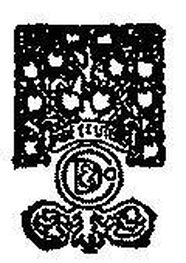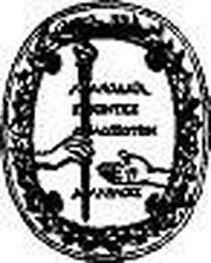(But whether there are indeed Simpsons who acquiesce always and for ever remains for me, as I have already confessed in the previous chapter, a quite open question. My Arminian temperament turns me from the Calvinistic conclusion of Mr. Brock's satire.)
Now the question of sin will hardly concern those damned and lost by nature, if such there be. Sin is not the same thing as damnation, as we have just defined damnation. Damnation is a state, but sin is an incident. One is an essential and the other an incidental separation from God. It is possible to sin without being damned; and to be damned is to be in a state when sin scarcely matters, like ink upon a blackamoor. You cannot have questions of more or less among absolute things.
It is the amazing and distressful discovery of every believer so soon as the first exaltation of belief is past, that one does not remain always in touch with God. At first it seems incredible that one should ever have any motive again that is not also God's motive. Then one finds oneself caught unawares by a base impulse. We discover that discontinuousness of our apparently homogeneous selves, the unincorporated and warring elements that seemed at first altogether absent from the synthesis of conversion. We are tripped up by forgetfulness, by distraction, by old habits, by tricks of appearance. There come dull patches of existence; those mysterious obliterations of one's finer sense that are due at times to the little minor poisons one eats or drinks, to phases of fatigue, ill-health and bodily disorder, or one is betrayed by some unanticipated storm of emotion, brewed deep in the animal being and released by any trifling accident, such as personal jealousy or lust, or one is relaxed by contentment into vanity. All these rebel forces of our ill-coordinated selves, all these "disharmonies," of the inner being, snatch us away from our devotion to God's service, carry us off to follies, offences, unkindness, waste, and leave us compromised, involved, and regretful, perplexed by a hundred difficulties we have put in our own way back to God.
This is the personal problem of Sin. Here prayer avails; here God can help us. From God comes the strength to repent and make such reparation as we can, to begin the battle again further back and lower down. From God comes the power to anticipate the struggle with one's rebel self, and to resist and prevail over it.
4. THE SINS OF THE INSANE
An extreme case is very serviceable in such a discussion as this.
It happens that the author carries on a correspondence with several lunatics in asylums. There is a considerable freedom of notepaper in these institutions; the outgoing letters are no doubt censored or selected in some way, but a proportion at any rate are allowed to go out to their addresses. As a journalist who signs his articles and as the author of various books of fiction, as a frequent NAME, that is, to any one much forced back upon reading, the writer is particularly accessible to this type of correspondent. The letters come, some manifesting a hopeless disorder that permits of no reply, but some being the expression of minds overlaid not at all offensively by a web of fantasy, and some (and these are the more touching ones and the ones that most concern us now) as sanely conceived and expressed as any letters could be. They are written by people living lives very like the lives of us who are called "sane," except that they lift to a higher excitement and fall to a lower depression, and that these extremer phases of mania or melancholia slip the leash of mental consistency altogether and take abnormal forms. They tap deep founts of impulse, such as we of the safer ways of mediocrity do but glimpse under the influence of drugs, or in dreams and rare moments of controllable extravagance. Then the insane become "glorious," or they become murderous, or they become suicidal. All these letter-writers in confinement have convinced their fellow-creatures by some extravagance that they are a danger to themselves or others.
The letters that come from such types written during their sane intervals, are entirely sane. Some, who are probably unaware—I think they should know—of the offences or possibilities that justify their incarceration, write with a certain resentment at their position; others are entirely acquiescent, but one or two complain of the neglect of friends and relations. But all are as manifestly capable of religion and of the religious life as any other intelligent persons during the lucid interludes that make up nine-tenths perhaps of their lives. . . . Suppose now one of these cases, and suppose that the infirmity takes the form of some cruel, disgusting, or destructive disposition that may become at times overwhelming, and you have our universal trouble with sinful tendency, as it were magnified for examination. It is clear that the mania which defines his position must be the primary if not the cardinal business in the life of a lunatic, but his problem with that is different not in kind but merely in degree from the problem of lusts, vanities, and weaknesses in what we call normal lives. It is an unconquered tract, a great rebel province in his being, which refuses to serve God and tries to prevent him serving God, and succeeds at times in wresting his capital out of his control. But his relationship to that is the same relationship as ours to the backward and insubordinate parishes, criminal slums, and disorderly houses in our own private texture.
It is clear that the believer who is a lunatic is, as it were, only the better part of himself. He serves God with this unconquered disposition in him, like a man who, whatever else he is and does, is obliged to be the keeper of an untrustworthy and wicked animal. His beast gets loose. His only resort is to warn those about him when he feels that jangling or excitement of the nerves which precedes its escapes, to limit its range, to place weapons beyond its reach. And there are plenty of human beings very much in his case, whose beasts have never got loose or have got caught back before their essential insanity was apparent. And there are those uncertifiable lunatics we call men and women of "impulse" and "strong passions." If perhaps they have more self-control than the really mad, yet it happens oftener with them that the whole intelligent being falls under the dominion of evil. The passion scarcely less than the obsession may darken the whole moral sky. Repentance and atonement; nothing less will avail them after the storm has passed, and the sedulous preparation of defences and palliatives against the return of the storm.
This discussion of the lunatic's case gives us indeed, usefully coarse and large, the lines for the treatment of every human weakness by the servants of God. A "weakness," just like the lunatic's mania, becomes a particular charge under God, a special duty for the person it affects. He has to minimise it, to isolate it, to keep it out of mischief. If he can he must adopt preventive measures. . . .
These passions and weaknesses that get control of us hamper our usefulness to God, they are an incessant anxiety and distress to us, they wound our self-respect and make us incomprehensible to many who would trust us, they discredit the faith we profess. If they break through and break through again it is natural and proper that men and women should cease to believe in our faith, cease to work with us or to meet us frankly. . . . Our sins do everything evil to us and through us except separate us from God.
Yet let there be no mistake about one thing. Here prayer is a power. Here God can indeed work miracles. A man with the light of God in his heart can defeat vicious habits, rise again combative and undaunted after a hundred falls, escape from the grip of lusts and revenges, make head against despair, thrust back the very onset of madness. He is still the same man he was before he came to God, still with his libidinous, vindictive, boastful, or indolent vein; but now his will to prevail over those qualities can refer to an exterior standard and an external interest, he can draw upon a strength, almost boundless, beyond his own.
Читать дальше







